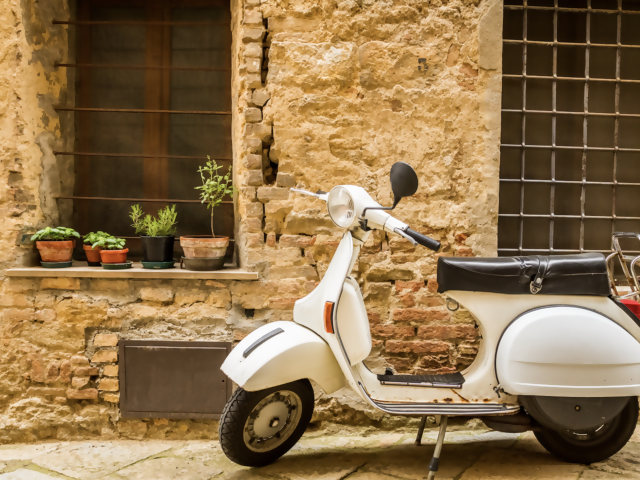Ireland has St. Patrick’s Day, Scotland has…Robbie Burns Day. Scotland’s most celebratory day is in honor of its national poet. If everyone’s a little bit Irish on March 17th, then on January 25th, the date of Robert Burns’ birthday in 1759, everyone’s a little bit of a Scot.
Throughout Scotland and among Scottish communities dispersed around the world, January 25 - Robbie Burns Day, or Rabbie Burns Day, or just Burns Night – is the occasion of the year to pull out all the stops cultivating your inner Scot.
Gentlemen who are fortunate enough to have their own kilts in family tartans don their finery, and ladies drape their tartan sash, or plaidie, over their shoulders and hold it in place with a fine Celtic pin. Then the festivities begin: whisky, of course. Bagpipes and drums and maybe Highland dancers. Perhaps a Scottish meal featuring venison or salmon.
And of course, the hero dish of the night: haggis. A sheep’s stomach stuffed with seasoned meat and bread crumbs that for many, is hard to, well, stomach. Even many Scots have a “love it or hate it” relationship with haggis, but it’s central to Scottish traditions.
The haggis is “piped in” on a platter by bagpipers, to be ceremoniously sliced open and served… but not before a poem is read in its honor first (pictured, top). And the author of the classic praise of the meal:
“Address to a Haggis,” is, of course, Robert Burns.
If you’ve never been to a Rabbie Burns Night you should put that on your bucket list as one of the great ethnic festivals. Did I mention the whisky?
Unless you’re a big fan of all things Scottish, you may never have heard of Burns’ Address to a Haggis. But I bet you sing one of his verses quite regularly. The New Year’s Even anthem “Auld Lang Syne” is a Burns poem and is thought to be the most-sung song in the English language.
Robert Burns’ place in Scotland’s rich past and present isn’t just the verse that made him a cultural icon as part of the Romantic movement.
He also used his fame as a platform to fight for social justice in Scotland. Raised himself in impoverished conditions, Burns wrote about issues such as poverty, inequality, and the rights of the common people, during an era when many suffered desperate physical hardship and oppression and faced the loss of their traditional culture to English dominance.
His poem "The Man's a Man for A' That" is a powerful statement on the equality of all people, regardless of their social status.
And he worked to preserve the literary heritage of Scotland in traditional language, before it was lost to the tide of English culture.
When you plan your next trip to Scotland, touch base with the legacy of the country’s bard. Here are some great places to visit in Scotland to celebrate Robert Burns:
1. Alloway, Ayrshire: This is the birthplace of Robert Burns, and it is an ideal location to celebrate his life and work. You can visit the Robert Burns Birthplace Museum, which offers a comprehensive insight into his life and poetry.
2. Dumfries: Dumfries is another significant location in Burns' life, as he spent his later years and died there. The Burns House Museum and the Robert Burns Mausoleum are popular attractions in this town.
3. If you’re in Scotland in January, you can also join local celebrations and Burns Suppers, as well as attend special exhibitions and events in Edinburgh, and towns and communities big and small across the country.
Wherever and whenever you go to Scotland, don't forget to enjoy the poetry, music, and traditional Scottish food that Robert Burns Day celebrates. If you aren't in Scotland for Robbie Burns Day in January, break out the whisky and tartan scarf and get inspired to plan your next journey to his homeland.
START YOUR SCOTLAND TRIP!
All rights reserved. You are welcome to share this material from this page, but it may not be copied, re-published, broadcast, rewritten or redistributed.
Interested in Culinary and Wine Travel?
Check Here








